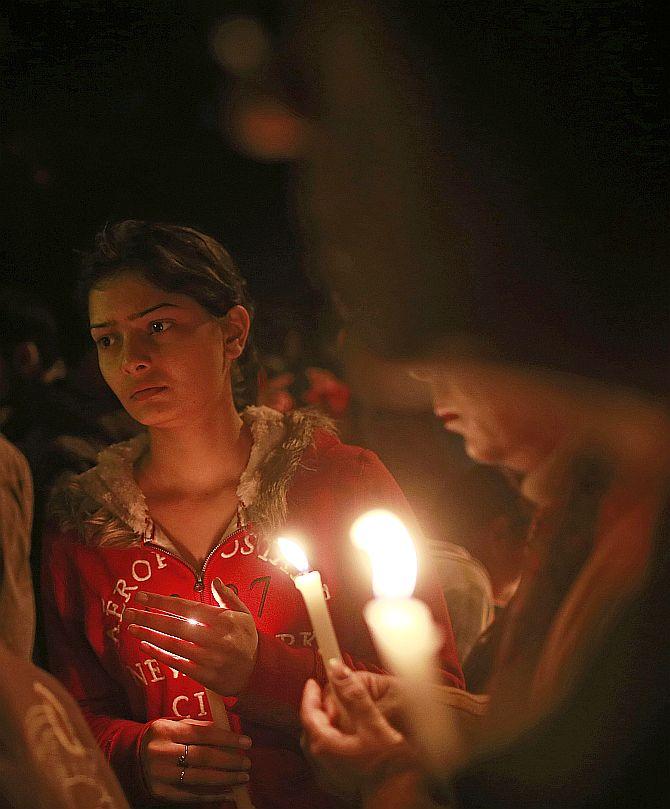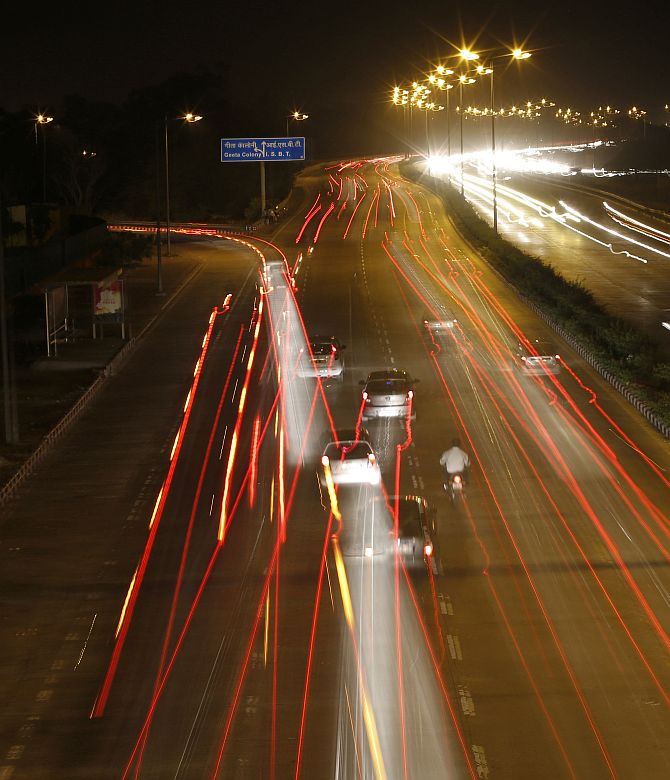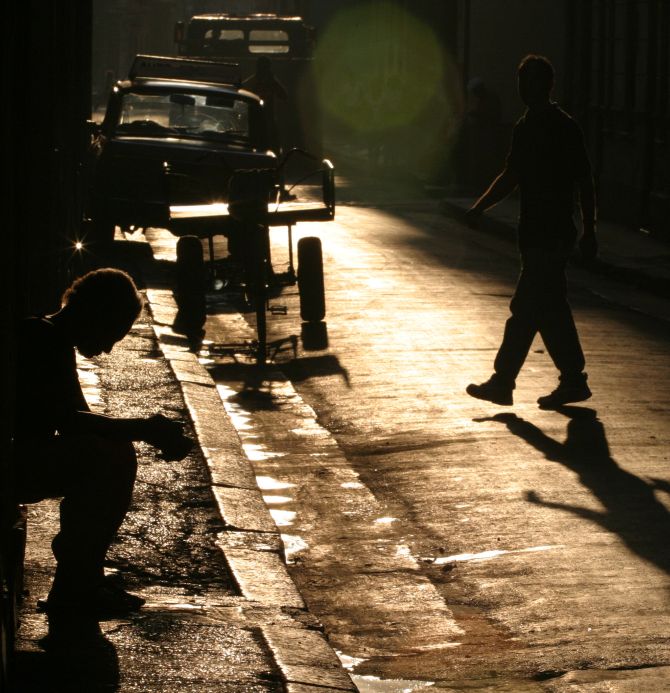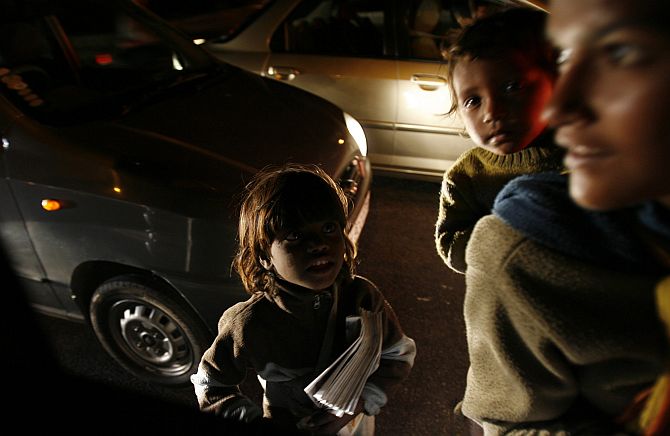
Let’s light the candles but, first, let us stop and look around to see who we can help, says Sankrant Sanu
While we are out on the street waving placards to hang the Delhi Braveheart's rapists, we have to remember that these rapists had actually left her alive after the horrible rape.
She lay alive on the side of the street crying for help, and no one bothered to stop or even make a phone call for over an hour. It was touch and go and medical assistance an hour earlier could have saved her life.
Every single person who went by on that road that night is responsible for the Braveheart's death. Collectively we are responsible for her death, since have we not displayed the same apathy on other occasions. How does it help to light candles later?
This death is not because of some abstract culture of repression that we have, but something which is a very real phenomenon in India -- our complete apathy.
When Nirbhaya and her friend lay on the side of the street, naked, unclothed, crying for help, what passed through our minds? Have we become so hardened and callous, as we go about in our air-conditioned cars spouting pollution on the street-dwellers, that common humanity has no room to touch us? Where has our humanity gone?
...

If somebody had stopped their car, extended help to the couple earlier, perhaps she would still be alive. So if you were there and you didn’t stop, you’re responsible for her death.
In fact, if you’ve ever not stopped anytime there is an accident, where you could have done something but couldn’t care to stop your car, get out from your cocooned environment and actually take a step to help, you’re responsible for Nirbhaya’s death. You are, and I am.
I remember not many years ago, I was riding in a car from Chennai to Pondicherry on a tourist trip. We had a rental car, a driver, and there was an accident on the side of the road and a whole bunch of people were gathered.
I rolled down my window but couldn’t see very clearly except that there was a man lying in the middle of the road, blood stains on a white kurta.
There was a crowd collected around but they were doing what we were, staring, not lifting a finger to help.
I looked at my female friend; I looked at the driver and motioned him to stop. I suggested perhaps we could carry this person, but it was only a half-hearted suggestion. I was in pleasurable company, on vacation, and did not care to have it be spoiled.
...

There was so much swirling in the mind. ‘Oh, maybe we’ll get blood on the seat of the rented car. Maybe we’ll get involved in all kinds of police trouble.’
Between my friend and the driver and I, we did what all upstanding citizens of India do these days -- we drove on. I still remember that, and I’m sure many of us have done it.
Where has this apathy come from? Why is it that our little appointment, our little meeting, our little inconvenience have become so much more important than somebody’s life? Where have we lost this humanity where we don’t come out and are willing to help?
In this case blaming “Indian culture” would be true, but what Indian culture? Notice that this is a particular problem of urban India. If you were in a village in India and got injured, many people around would cluster around and find help for you. If you were in a village in India and you lost your way and it was late and you didn’t have anywhere to go, you would get shelter, you would likely be invited into somebody’s hut and they would share with you what little meal they have.
It has happened to me.
...

Now imagine a villager lost in urban India, and there are many, would an urban Indian dweller ever think of offering them shelter, offering them some food? No, they are those people, the uncivilised, those that don’t even speak English and thus, in our mind, uneducated. But who really is more civilised?
We look down our noses on these backward “dirty” villages, with our feelings of superiority. Have we become completely, grossly uncivilised in our own English-medium convent-educated self-interest?
If you’re looking at problems unique to India let us hold ourselves, the English-educated urban elite who are reading this article, culpable here. We are the ones least likely to stop. It is unlikely this apathy would happen either in America where people would stop to help, or in a village in India.
This is a phenomenon of urban India -- our complete apathy to fellow human beings. What is the point of lighting candles? That is also a new urban fashion, isn’t it?
Yes, there were criminals and rapists who were ultimately responsible for the Braveheart's death. But she could have been saved. She could have been saved if there had been one good heart that had glowed, that had stopped and seen that couple and helped them.
We are responsible for our actions as well as our inactions. That good heart could be you or me tomorrow, when we see someone in difficulty with a crowd around them and decided to stop and help rather than keeping on going. Let’s light the candles, but first, let us stop and look around to see who we can help.
Sankrant Sanu is an author and entrepreneur who lives in Seattle and Gurgaon. His blog can be read at sankrant.org
Click on NEXT to go further...
...